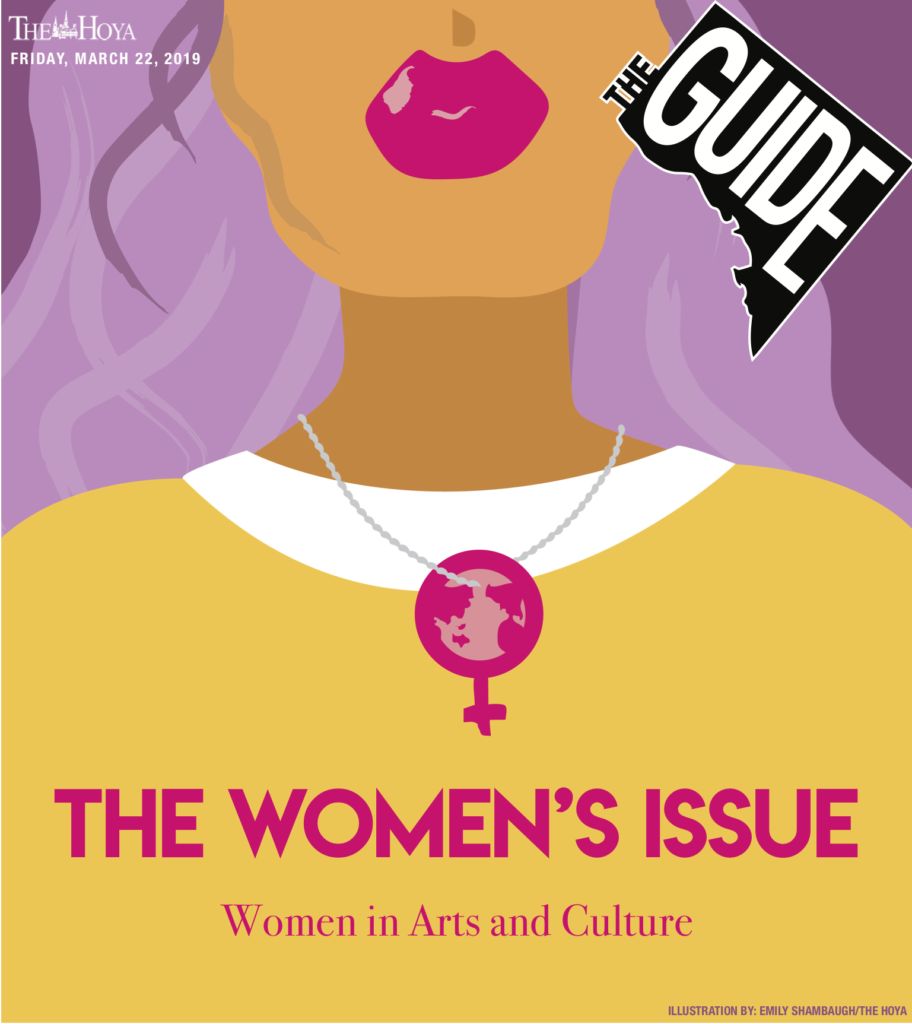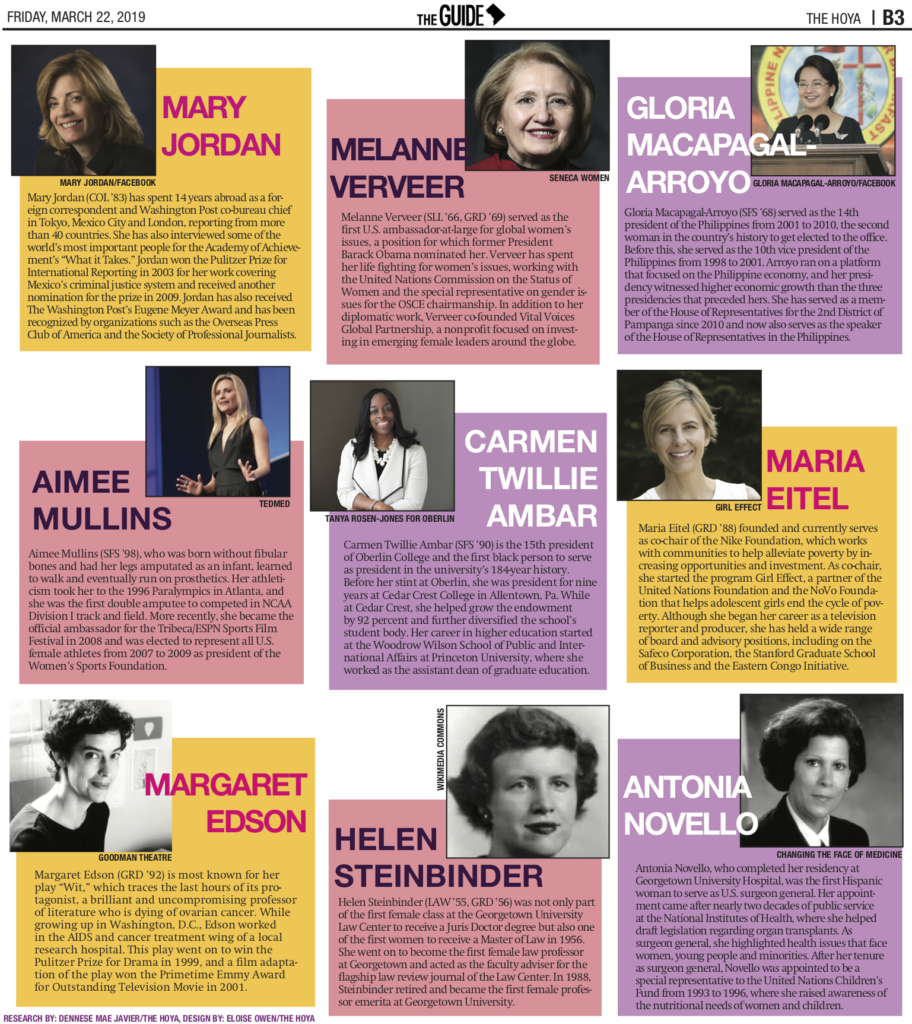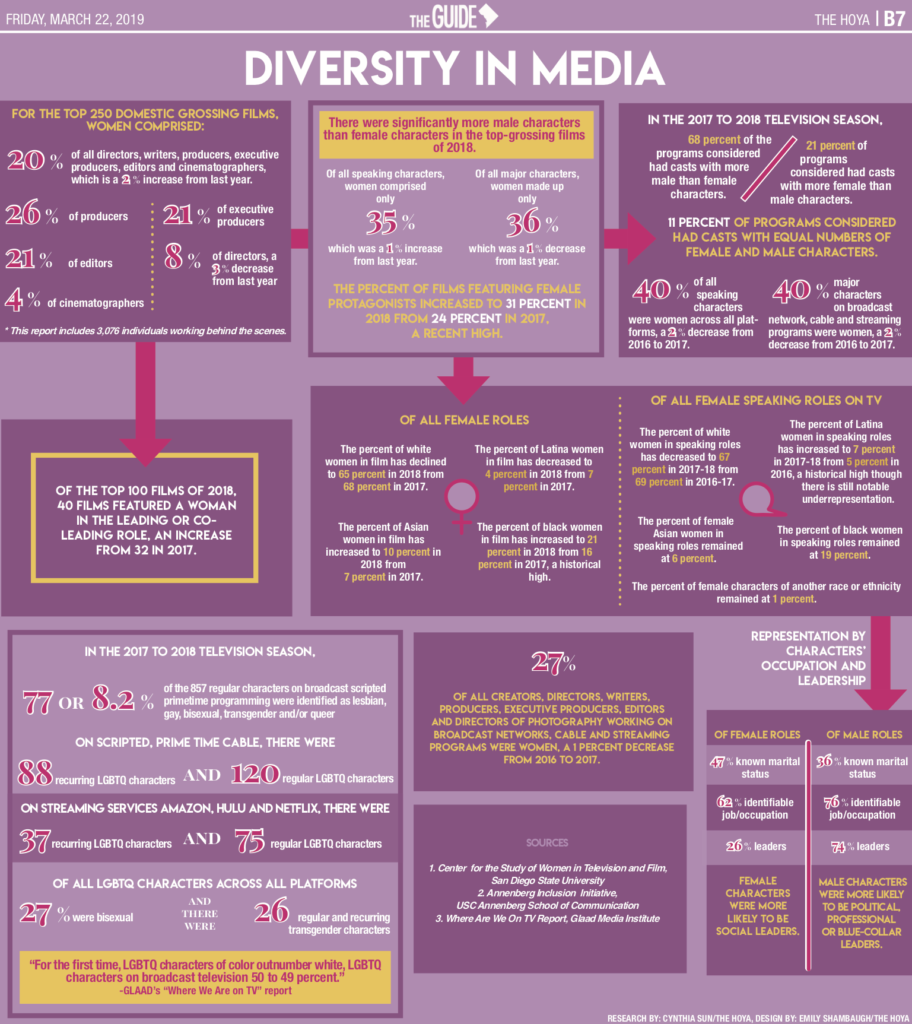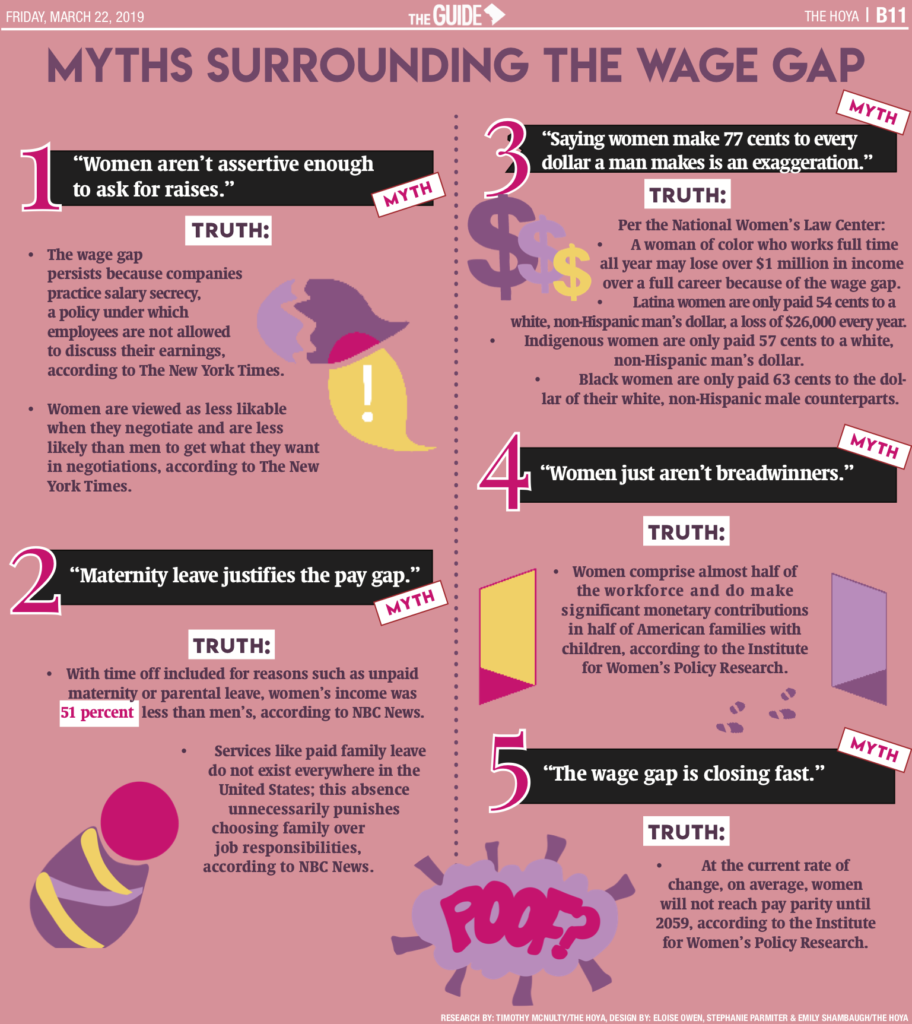When Netflix cancelled the critically acclaimed show “One Day At A Time” on March 14, the streaming site was met with thousands of outraged comments on the tweet lamenting the decision. As evidenced by a simple scroll through the replies, their choices do not exist in a vacuum, nor does cancelling a show have no further implications.
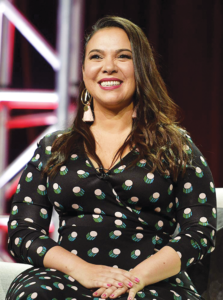
The rebooted version of “One Day At A Time,” which first aired in 2017, was a show centered around a Cuban-American family, and Gloria Calderón Kellett, a woman of color, was its co-showrunner. Calderón Kellett is one of several female showrunners leading some of television’s biggest programs like “Orange is the New Black,” “Jane the Virgin,” “Empire,” “Fresh Off The Boat” and “Broad City,” to name a few. Despite these impressive outliers, though, as of a 2017 study from UCLA, “90% of showrunners are white, and 80% are male,” according to Time.
When women are disproportionately outnumbered in these positions of power, the media shows fewer of the perspectives of underrepresented groups, and women as a whole have access to fewer opportunities, according to C. Nicole Mason, a professor in the women’s and gender studies program.
“I think it’s really important because having women in senior roles, executive roles, makes it possible,” Mason said in an interview with The Hoya. “It changes the stories that we tell, it also opens the door for other women because women who are in positions of power are connected to other women.”
“One Day At A Time” was one of only around 60 out of 400 shows to receive a ReFrame stamp, given to productions with laudable gender equity in production positions, according to the Los Angeles Times. However, the industry has caused a recent rise in demand for women of color in these executive positions, pushed in part by diverse programming from alternative platforms like Netflix, Amazon and HBO that have become significant successes, according to The New York Times.
The cancelling of “One Day At A Time” becomes even more disappointing in the context of streaming platforms, which have been branded as places where the traditional mentalities of the television industry were being cast aside to feature overlooked perspectives like women of color and trans people, according to Time. Considering especially that a number of the women-driven shows like “Orange Is The New Black,” “Crazy Ex-Girlfriend” and “Broad City” that are currently on air will be ending in 2019, the tenuousness of progress is apparent.
When the systems in place, though, have been to rigged to benefit the narrow networks of those people already in power, few women are considered qualified by the traditional definition as the current leadership ignored them for promotions, according to The New York Times.
“Not enough minority women have been groomed for senior writing jobs, a function not only of the industry’s white male focus, but also of rarefied access, discrimination in promotions, and low entry-level pay,” Cara Buckley writes.
These positions are necessary, though, to going on to higher positions, which can put the few women of color who are in the room in difficult positions, according to an interview with Calderón Kellet with the Los Angeles Times.
“I’d feel complacent, because I didn’t want to be the one where they’re, like, ‘Well, we tried to hire the Latina, and she was so sensitive,’” Calderón Kellet said. “I felt like I had to put up with it so that they would think we’re cool to have in a room. At the time, that’s what I felt I had to do.”
Some women have been able to overcome these barriers, becoming television icons on par with many of their male counterparts.
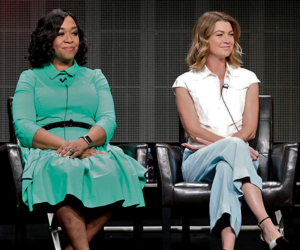
Shonda Rhimes, former showrunner for massive series like “Grey’s Anatomy” and “Scandal,” has been dominating the industry for years. She proves that when women hold positions of power, all women benefit.
Rhimes, a 2017 inductee to the Academy of Television Arts and Sciences Hall of Fame, owns her own production company called Shondaland, which will be producing a host of new series with Netflix that put female creators and subjects at the forefront, according to CNN.
Despite standouts like Rhimes, the still concerning numbers of women in leadership roles means that the question of improving the industry still remains. The only answer seems to be to flip the statistics, said Gabrielle Stanton, showrunner for “The Flash,” at a panel of female showrunners in June of 2018, according to a Los Angeles Times article.
“The more of us that are running these shows, that are starring in these shows, that are making decisions about who gets hired on these shows, that’s how we’re going to make change,” Stanton said.













